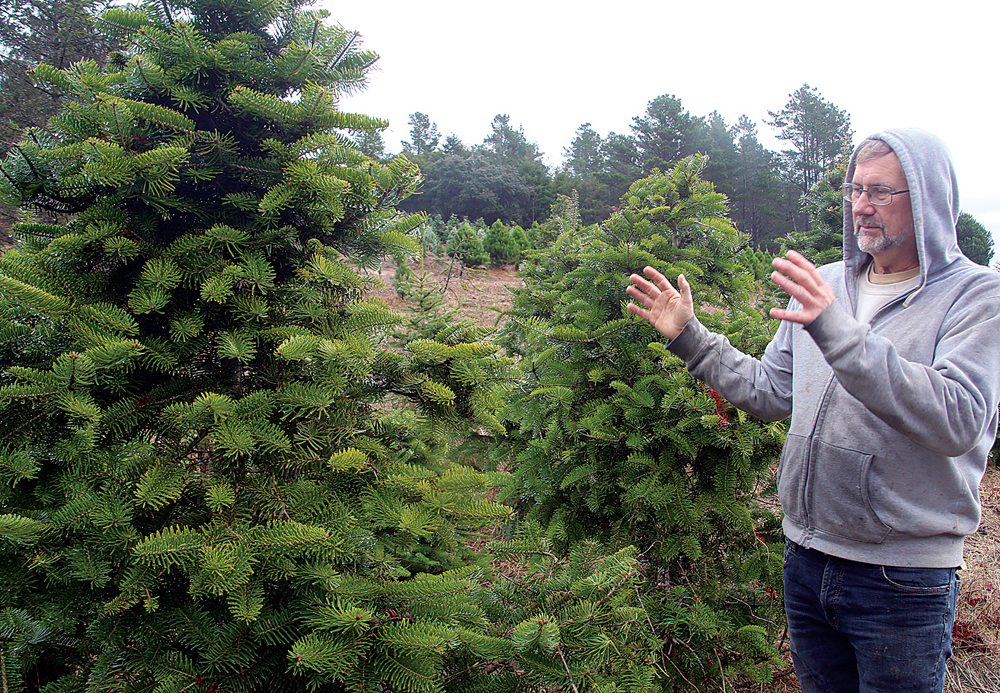ROYAL OAKS—It was the early 1920s when Glenn Church’s great-grandfather, Clinton King, purchased a piece of land in a heavily-wooded area of North Monterey County.
Nearly 70 years old at the time, King cleared out the plot—chock full of oak trees—by hand.
“Whenever I’m out here doing something, and I think it’s a lot of work, I remind myself that he was out here swinging an axe, hand-sawing, pulling and hitching up horses,” Church said. “It puts things into perspective.”
The property was originally used to grow corn for popcorn. The family would harvest the corn, add in honey from its beehives and peddle it on the streets of East Salinas.
“This was during the Great Depression,” Church said. “They didn’t have much. That’s how they got by.”
Church’s grandfather Warren Church switched gears in 1959 when he bought an adjacent plot of land further down the road and began selling Christmas trees. As the business expanded, trees were also planted on the original farm. Today both farms are run by Glenn and his two sons, making the business multi-generational.
The history of Church Christmas Tree Farms is still very much on display, from old farming equipment lining the trails to a scattering of original buildings.
“When you start looking closely at these things you realize, ‘Wow, the entire history of this country is right here,’” Church said. “They’re family heirlooms, but they’re also important pieces of history that should be preserved.”
The Christmas tree industry has changed a lot in 60 years. In the past decade there has been a drastic downturn in the number of farms across the country—though demand has remained. This has led to many pre-cut lots having to raise prices and left growers scrambling.
In addition, a changing climate has affected which trees can thrive in certain regions, which is why Church Christmas Tree Farms continues to adapt, experimenting with different types of trees and growing methods. Drought-resistant trees, such as the Arizona and Leyland Cypress, are becoming more common.
“We’re always trying to stay ahead of the curve,” Church said. “Douglas Fir used to be the most popular… but they tend to burn.”
But drought-resistance isn’t currently an issue, as heavy rains have hit the Central Coast immediately at the start of the buying season, deterring customers.
“The rain in May was nice,” Church said. “It helped keep irrigation down. But this is a lot. We have a short season to sell. It’s an exciting, fun time, but the weather has been tricky.”
Despite the challenges, Church is optimistic. He urges families to brave the rain and make the trek to the farms. (Bring sensible shoes, he advises.) The farm allows for families to cut down their own tree—with their own saw or one borrowed from the farm.
Already Church has seen some regulars stop by to find the perfect tree.
“I recognize people every year,” Church said. “One of my first customers… she has been coming here since she was a kid in the 1960s, right at the start of everything. We love that.”
Church Christmas Tree Farms will remain open until Dec. 15. It is located at 385 and 470 Hidden Valley Rd., Royal Oaks. One or both farms may be open at a time. For daily hours, pricing and more information visit churchchristmastreefarms.com or call 722-0819.










